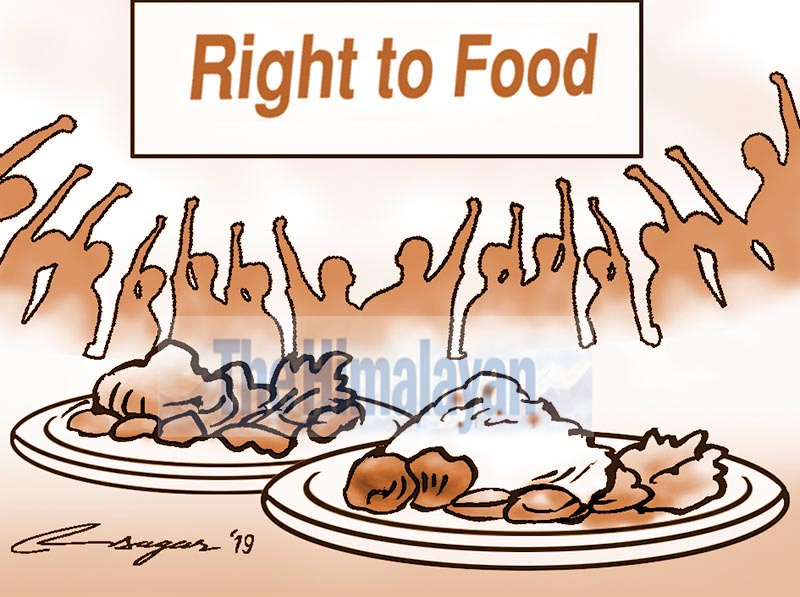Right to food sovereignty still a far cry
Kathmandu, May 1
More than three-and-a-half years after right to food and food sovereignty was guaranteed in the constitution, rules and directives that could facilitate the enforcement of these constitutional rights detailed in Right to Food and Food Sovereignty Act have not been formulated. This means citizens won’t be able to enjoy their right to food and food sovereignty as per the spirit of the constitution.
Executive Director of Justice and Rights Institute-Nepal Basanta Adhikari said people waited for three years to see the enactment of Right to Food and Food Sovereignty Act, now they have to wait more to see the formulation of rules and directives that can facilitate the implementation of the act. Adhikari said the act provisioned for identifying families that were at risk of starvation, but that could not be done in the absence of rules and directives.
The act uses the phrase ‘as prescribed’ in many of the sections and sub-sections of the act and unless rules and directives are formulated, those provisions cannot be enforced, he added.
Spokesperson for the Ministry of Agriculture and Livestock Development Tej Bahadur Subedi said his ministry had just started drafting rules but he failed to give a clear timeline for the completion of the process. “There are multiple government agencies that need to play their role to implement this act and we are yet to consult all the stakeholders,” he added. Subedi said his ministry could decide whether it needed to formulate directives only after framing relevant rules.
Agriculture campaign for food activist Krishna Paudel said right to food sovereignty meant the government should put in place mechanisms and infrastructure to protect local seeds, provide subsidy to farmers, increase agro products and make available enough organic fertilisers in the market, but the government had not done anything in that regard yet.
Director of Amnesty International-Nepal Nirajan Thapaliya said if the act had to be brought on par with international human rights laws that Nepal was party to, it should be amended to broaden the scope of right to food and food security, including the meaning of some words used in the act.
Adhikari and Thapaliya said many genuine peasants would not qualify for agriculture subsidy or other such benefits, as the act defined peasants as only people who continuously worked as peasants for six months. “Few farmers continuously work for six months in their farm land,” Adhikari said. He added that majority of peasants worked for less than six months as their landholdings were small.
He said the act envisaged National Food Security Council, but if such a mechanism was formed under rules, its autonomy could be compromised.
Section 4 of the act provides for prevention and control of starvation.
Thapaliya said the act stipulated that the government took measures to control starvation. “It is the government’s duty to prevent starvation. The government cannot shirk its responsibility by taking measures to control starvation,” he argued.
Thapaliya said the act failed to ensure that if anybody died due to starvation, the government authority concerned should be punished for not preventing death from hunger. He said the act did not incorporate provisions whereby starvation death could be investigated.





